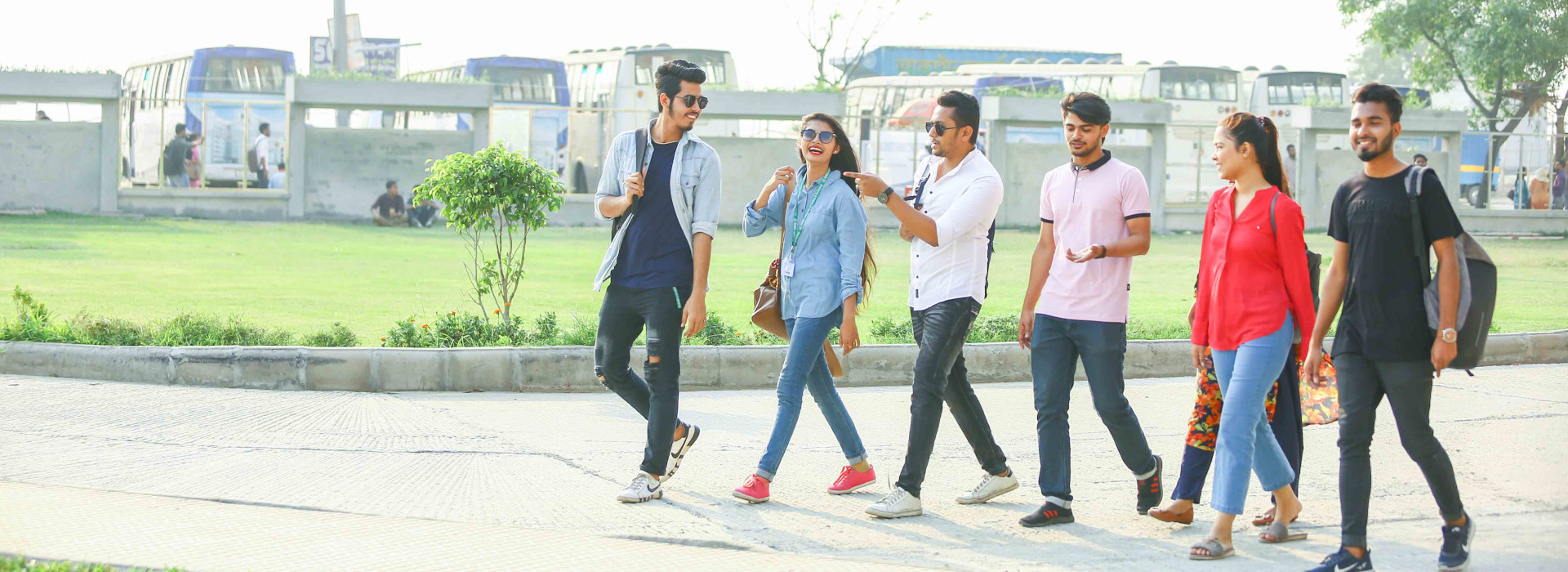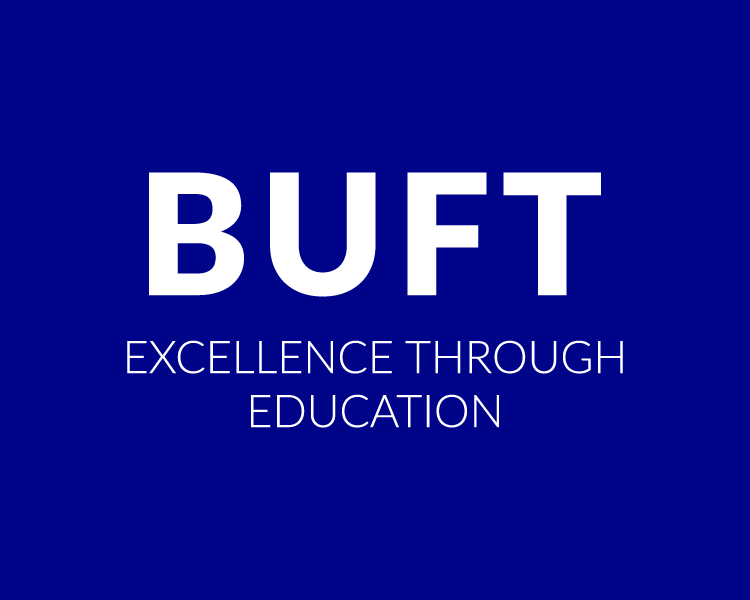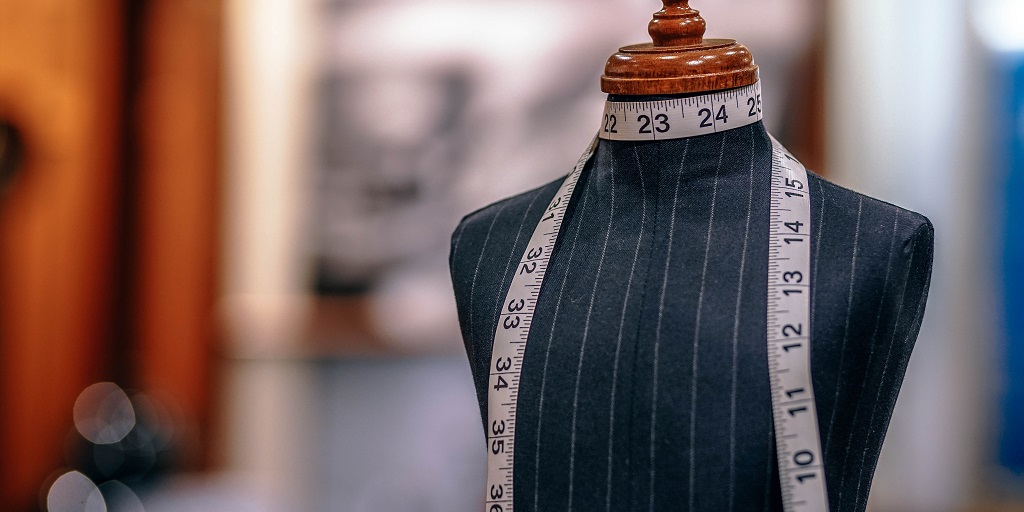
Department of
Apparel Manufacturing & Technology (AMT)
Welcome!
The long-standing trend of producing apparels and textiles in Bangladesh or, accordingly, of selling apparels and textiles abroad has resulted in apparel manufacturing industries and their allied textile industries having an ever greater demand for graduates who possess the interfacial skills and competencies needed for efficient management.
After independence in 1971, rebuilding Bangladesh, the war-ravaged country, with limited resources appeared to be the biggest challenge. The scenario was aggravated by a huge pressure from the unskilled workforce. Human Resource was one of the potential sectors that could bring a positive change. A holistic change was the only need to explore the immense hidden opportunities in earning sectors like agriculture, foreign remittance, tourism, IT and Ready-made Garments (RMG). With its 83% of total export earnings of the country, RMG has now become the largest foreign exchange earner as well as the largest employer in the country. Apart from 4 million direct employments in RMG in Bangladesh, this industry has employed more than 10 million Bangladeshi workers in its whole value chain. The ‘Made in Bangladesh’ tag has brought glory for the country, making it a prestigious brand across the globe. This has resulted in apparel, textile and fashion sectors having a growing demand for graduates, experts, technologists and engineers who possess the interfacial skills and competencies needed for efficient management and currently this is being met by hiring foreign nationals.
Keeping this high demand of experts and skilled workforce in mind, BGMEA University of Fashion & Technology visualized the need and introduced a department, Department of Apparel Manufacturing & Technology which offers an undergraduate program that develops in the students the ability to make intelligent business like decisions with prudence. The department focuses on strengthening of key technological functions of apparel industries and understanding of industrial engineering and ergonomic techniques. The emphasis is on production planning, control and operation management and quality management practices applicable in the apparel industries.
The department maintains continuous interactions with the industries and visits to leading manufacturing units which not only creates an enriching learning environment for the students but also widen the horizons of their experience. The graduates are equipped with competent technical knowledge, thereby making them able to anticipate and address the concerns and issues of the emerging manufacturing principles.
Vision of the Department
Mission of the Department
-
M 1: The essence of the Department of Apparel Manufacturing & Technology is to constantly strive to provide an in-depth knowledge to its students so that they add value to the existing treasures of apparel manufacturing technology concepts.
-
M 2: Promote lateral thinking and a spirit of enquiry among its students so that they look from a different angle through a creative approach by which they are able to provide simple solutions to complex technical problems in apparel manufacturing and allied textile sectors.
-
M 3: To deliver through its teaching-learning process the richness of apparel manufacturing technology and multidisciplinary knowledge in a way where ethics and social commitments will be the cornerstone for its students.
Career Pathways
Career pathways for graduates on Bachelor of Science in Apparel Manufacturing & Technology program are Teaching, Merchandiser, Supply Chain Manager, Factory Manager, Production Manager, R&D Manager, Planning Manager, Country Manager, Washing Manager, Entrepreneurs, Apparel Technician, Product Developer, Sample Developer, Garment Technologist, Pattern Master, Quality Controller, Welfare Officer, Wash Technician, etc.
Knowledge and skill in knitwear manufacturing, fashion design, textile engineering along with the learning from interdisciplinary minors and the general electives chosen, shall further increase the scope of becoming a multifaceted professional in various segments of apparel, textile and fashion industries.
Program of Study
Students who opt for the Bachelor of Science in Apparel Manufacturing & Technology program as their field of study can specialize in the study area of apparel product development, construction and in apparel business management. Studies in apparel products development focus on cotton, cotton-manmade blended and synthetic products such as menswear, womenswear, childrenwear, sportwear, etc. Students acquire comprehensive insights and skills in all fields of apparel construction, such as prototype/true size pattern design, style construction, marker making, spreading and cutting, assembling, finishing and correct fit. Courses in apparel production and operations management, compliance and sustainability management, pollution, energy conservation, water saving, reducing, recycling & reusing, circular economy, ergonomics and employee safety management, with a particular focus on the garment processing and care, marketing and merchandizing, supply chain management, apparel design and development, apparel quality management, people management, coordinating with others, emotional intelligence, interpersonal team-building skills, ability to instruct, etc. prepare students ideally for executive management positions in the fields of apparel products design, apparel products manufacturing and apparel business management.
The program trains young technologists and professionals for the highly diverse and versatile range of technical and business administration tasks in the apparel industry. Studies also focus on specialized fields of apparel manufacturing production techniques and processes. This knowledge is complemented by offering extended studies in the fields of science, English communication and business administration. Special focus is given on students’ communication skills such as public speaking, writing, listening, presentation, emails, telephonic conversations and meetings. A knowledge of quality management, economics and financial management and specialized IT systems such as ERP rounds off the students' skills and competencies.
The program consists of eight academic semesters and a total of 145 credits. Each semester is subdivided into modules from the fields of: Majors, Deepening Specializations, Interdisciplinary Minors and General Electives. Academic Majors are the academic disciplines or program related courses which the undergraduate students formally complete. Students are given the opportunity to deepen their understanding of a part of their core majors through a Deepening Specialization, which gives them a further edge in specific industries. Interdisciplinary Minors provide individuated pathways that would permit students to acquire interdisciplinary skillsets and opt for a set of subjects that complement studies in one’s major or explore an unrelated area of intellectual interest. General Electives are offered to the students to help them enhance their personality and develop interests in specific areas like values, personality development and character building, soft skills, communication skills, critical thinking skills, professional integrity, honesty, values and norms, professional etiquette and professional ethics etc.
B.Sc. in AMT (Code: 101)
Students who opt for the Bachelor of Science in Apparel Manufacturing & Technology program as their field of study can specialize in the study area of apparel product development, construction and in apparel business management.
Studies in apparel products development focus on cotton, cotton-manmade blended and synthetic products such as menswear, womenswear, childrenwear, sportwear, etc. Students acquire comprehensive insights and skills in all fields of apparel construction, such as prototype/true size pattern design, style construction, marker making, spreading and cutting, assembling, finishing and correct fit. Courses in apparel production and operations management, compliance and sustainability management, ergonomics and safety management, with a particular focus on the garment processing and care, marketing and merchandizing, supply chain management, apparel design and development, apparel quality management, prepare students ideally for executive management positions in the fields of apparel products design, apparel products manufacturing and apparel business management.
Profile of the program
- Name of the Degree: Bachelor of Science in Apparel Manufacturing & Technology, abbreviated as B. Sc. in AMT
- Number of Credits: 145
- Language of Instruction: English
- Courses Start: Spring (January) & Fall (July) each year
- Standard time to attain the Degree: Four years (eight semesters, six months each)
- Minimum grade to attain the Degree: 2.50 in a scale of 4.00
The program trains young technologists and professionals for the highly diverse and versatile range of technical and business administration tasks in the apparel industry. Studies also focus on specialized fields of apparel manufacturing production techniques and processes. This knowledge is complemented by offering extended studies in the fields of science, English communication and business administration. A knowledge of quality management, economics and financial management and specialized IT systems such as ERP rounds off the students' skills and competencies.
The program consists of eight academic semesters and a total of 145 credits. Each semester is subdivided into modules from the fields of: Majors, Deepening Specializations, Interdisciplinary Minors and General Electives. The degree program is completed with an 8-week internship which the students do in a company, followed by the production of a Bachelor's Thesis/Final Project.

